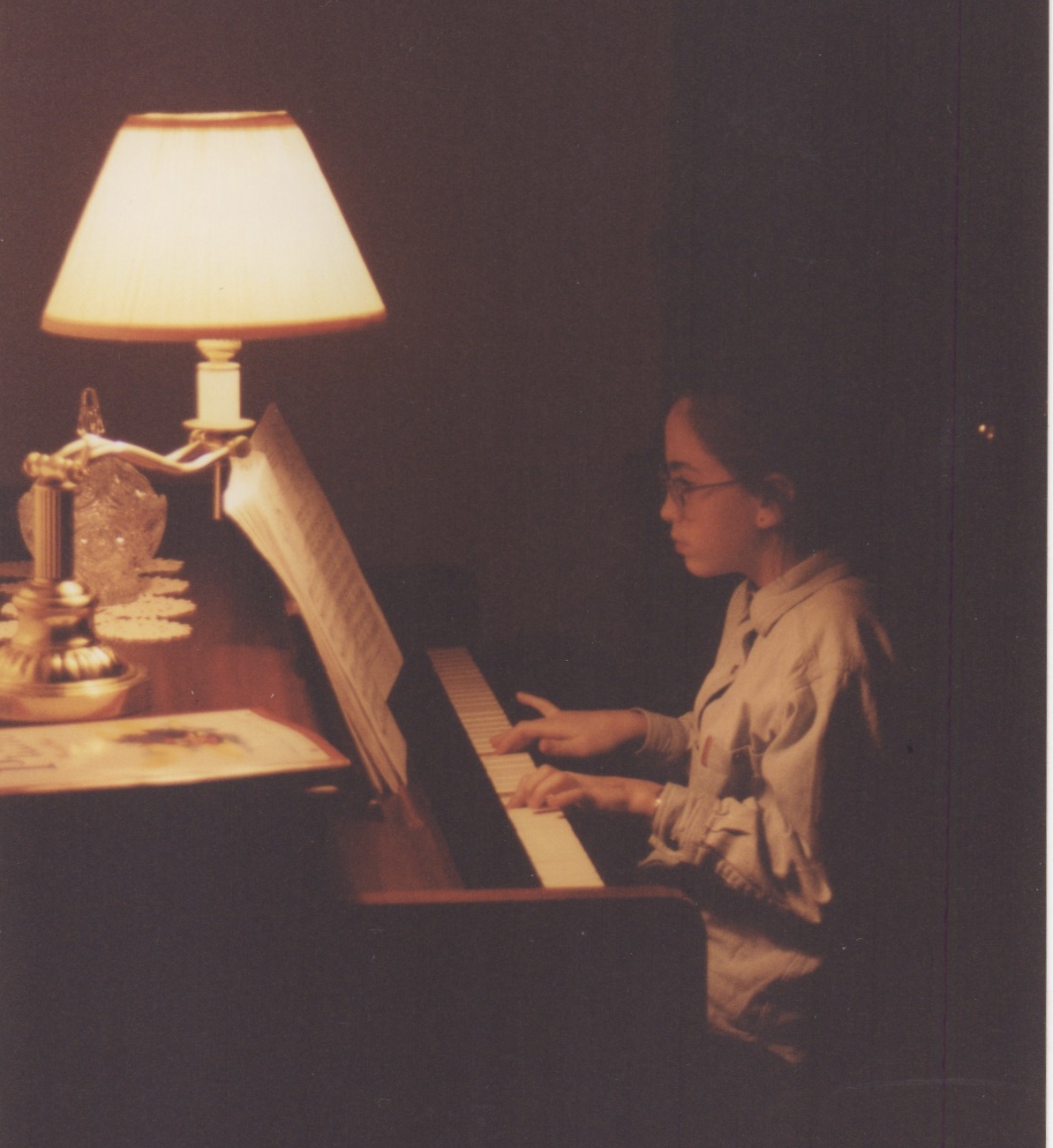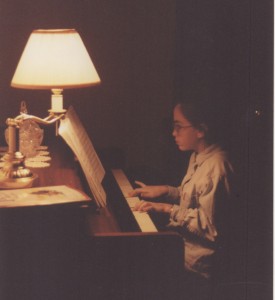Should You Purchase a Piano for Your Progeny?

Recently, I had my aging piano tuned. As pianos go, it’s a middle of the road model. We purchased it when my daughter was taking lessons and showed more promise than the clunker we had purchased from someone’s basement could accommodate. She’s grown up, and I don’t play much anymore, but it’s handy for rehearsing my choir music.
After Bob was done tuning (and played a beautiful piece to test the sound), I asked him how business was going. He replied that he could be working seven days a week if we wanted to. Of course, he’s one of the only technicians left in our community. As I wrote out my check, I asked him what he thought about the decline in piano ownership I read about recently.
Piano Ownership is Declining
According to Marilyn vos Savant’s article in Parade, piano ownership has been on the decline for many years. In 1909, one of every 99 homes in America had a piano. This figure slowly declined and in 1978, one in every 316 families owed one. By 2015, according to vos Savant, the figure had plummeted to one in 3,788.
Bob said that at the beginning of the 20thcentury, families and friends gathered around pianos and sang songs for entertainment. With the advent of movies, and then television, families shifted from creating their own entertainment in favor of siting back and being entertained.
We also discussed the fact that no one sells new pianos in our town anymore. He said one reason new piano purchases have dropped off so dramatically is that pianos last a long time and they are being sold on the secondary market. This fact has positive and negative aspects. It proves that pianos are not throwaway items and have endurance over the years. One negative, though, is that many older pianos have not been maintained very well. They may not sound very pretty, and they may be difficult to play, too.
That is exactly why we ended up buying a brand-new piano when my daughter was young. I had trouble playing the basement-find piano, and so did she. The new one was so much easier to play and had a richer sound. Years later, we still have it, although the soundboard is a mess because of some poor craftsmanship, and the upper octave won’t stay in tune. That’s okay. I don’t spend a lot of time up there.

Should You Buy a New Piano for Your Child?
I wasn’t able to find statistics for trends on the number of kids learning to play the piano, but Bob’s wife owns a music studio and she currently has 40 students. She has to turn many away. Bob said that parents today are very aware that learning a musical instrument has a positive effect on a child’s intelligence, and it even helps them in their math skills.
So, what’s a parent to do? Buy a new piano that will lose value faster than a new car driven off the lot? And is it wise to make such a substantial purchase with the knowledge that the child may have no inclination, ability, or perseverance for this instrument? Are they willing to risk being stuck with an instrument or peddling it at a great loss? Or not even being able to give it away as Tim Hahn of the Erie Times News experienced in his “Saying Farewell to an Unwanted Guest” column?
Here’s my suggestion. There is profound value in having your child learn a musical instrument. Piano is one of the best instruments to learn, because it teaches both the treble and bass clefs, coordination between both hands, brain development, etc. These skills can then be taken to almost any other instrument, but it is more difficult in the opposite direction.
Until your child shows some talent and love for the piano, you may not want to buy a new one. There are plenty of used instruments for sale. Here’s a suggestion though. Find a piano tuner to go with you when you think you’ve found, “the one.” A technician can tell you a lot about the sound and mechanical health of the instrument. You will, of course, have to pay for this service, but you’ll end up with an instrument that will probably cost you less than $1,000 rather than $5,000 or more.
If a piano is not a possibility because you live in an apartment or there’s some other reason you can’t accommodate a large instrument, I will say that an electronic keyboard is better than nothing. There is a whole different set of considerations when buying a keyboard, though. The biggest factor to keep in mind is how smoothly the keys operate and how quiet they are while being played. A clackety-clack of keys accompanying the music being played can be quite distracting. Also, there are keyboards for which the keys will return varying sound based on the pounds of pressure applied by the fingers, which will give a more natural sound.
So there you have it. It’s still possible to buy a piano and it is a worthwhile purchase. Sometimes, it’s appropriate to buy a new piano (Bob says Yamaha is best). And musical instruction is never wasted on a child. Even if the child does not continue into adulthood, the instruction itself will provide many benefits beyond learning to play the instrument.
Ann Silverthorn is a freelancer and blogger who writes in a wide variety of genres. Follow her on Twitter, Instagram, and Facebook.




Leave a Reply